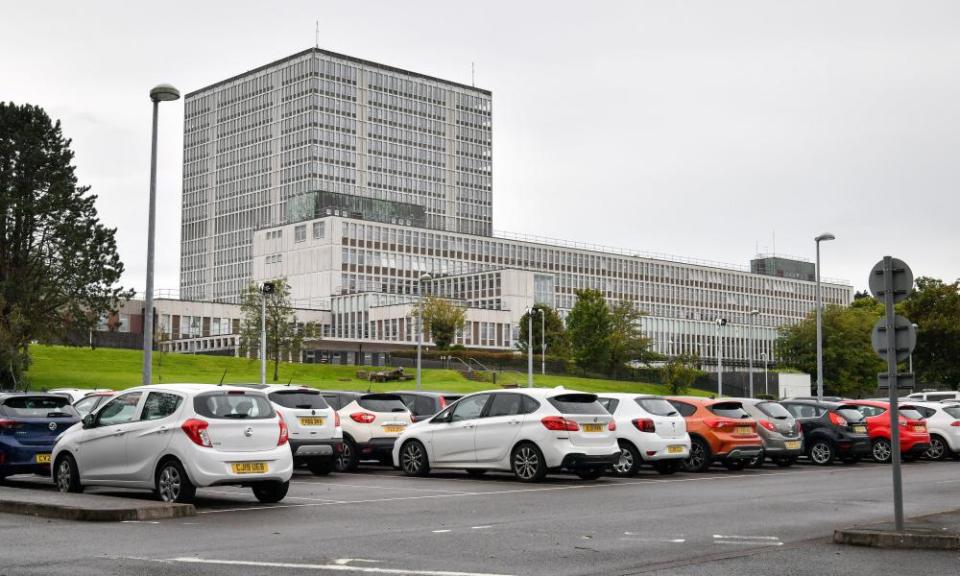The Observer view on government support for low-paid to halt spread of Covid-19

Exactly a year after the Chinese city of Wuhan went into the world’s first coronavirus lockdown, the Covid-19 death toll continues to mount. In the UK, we are losing more than 1,200 people a day to the virus and the total number of people who have died is almost 100,000. Countless people have lost someone they loved to this disease. It is a national tragedy whose scale would have been unthinkable in early 2020.
Most governments have been struggling to contain this virus. The new variant circulating in the UK, thought to be 30-70% more infectious, and which scientists think might be more deadly, poses new challenges as the vaccine gets rolled out. But our government has repeatedly made serious errors that have resulted in a higher-than-necessary death toll.
The government’s consistent hesitancy in taking swift action to contain the spread of the virus has cost lives. It imposed a national lockdown too late last March, again left it too late last autumn, and went ahead with relaxing restrictions in the run-up to Christmas against the advice of many scientific experts. It should have introduced a national lockdown more quickly in light of the growing evidence that the new variant was more infectious. The prime minister’s reluctance to make difficult decisions – together with a lack of cabinet competence that has manifested itself in the shambolic roll-out of test and trace, for example – has proved lethal.
Boris Johnson and his cabinet appear to have no understanding of the way people in low-paid work live their lives – and it shows. They have led a pandemic response that has offered far more protection to the comfortably affluent than it has to those who do not have professional jobs they can do from home or who cannot afford to follow the government’s public health advice.
The government’s messaging has focused on imploring the public to comply with the rules, while emphasising that those who do not follow them will be met with steep fines and enforcement action. Yet data suggests that, on the whole, people are complying with the rules as much as they can.
The biggest area of non-compliance, however, is with the requirement to self-isolate for 10 days after a positive test, or coming into close contact with someone who has tested positive, which is so critical to slowing the spread of the disease. Government surveys have suggested that as few as one in five people with symptoms are coming forward for tests and as few as one in four report compliance with self-isolation. Too many people only qualify for statutory sick pay at just £96 a week if they test positive and some of the lowest-paid workers in the least-secure forms of employment are entitled to nothing at all. Just one in eight workers is eligible for a discretionary £500 lump sum if told to self-isolate and many do not know at the time of applying whether they will get it. This puts people in the dreadful position of having to make a choice between protecting their families and colleagues by following public health guidance or being able to afford to pay their rent and feed their children. Addressing this lack of financial support for people to self-isolate is an urgent public health priority. One option would be for ministers to guarantee no individual will suffer a loss of earnings as a result of self-isolating if required, as suggested by Jeremy Hunt in an interview with the Observer.
The government’s focus on enforcing the rules for members of the public has far exceeded any efforts to clamp down on employers who are pressurising employees to return to work too soon after a positive test or who are breaking Covid rules. Not a single employer has been issued with an enforcement notice for Covid safety breaches since early January, despite thousands of complaints having been sent to the Health and Safety Executive. And as we report this week, the largest known Covid outbreak at a workplace has happened at the DVLA, a government agency. Workers were reportedly told to turn off their test-and-trace app to avoid being notified if they had come into contact with a positive case, employees with symptoms were encouraged to go in and vulnerable workers have had their requests to work from home turned down. How can the government credibly police employers when it is breaking its own public health guidance and putting employees at risk?
A government that put as much emphasis on protecting the low paid who cannot work from home should also revisit regulations for public transport, workplaces and public spaces in light of the more infectious variant. It should consider making higher-grade masks compulsory in public spaces and providing these masks free to those who must still go out to work.
The huge success story of this pandemic so far has been the vaccine rollout: here, ministers deserve real credit. But it will be months before we have enough population-level immunity conferred by a vaccine to get back to something approaching normal life and that is assuming we do not see the development of vaccine-resistant strains. The government has rightly asked all of us to stay at home to save lives and protect the NHS from being overwhelmed. But it must fulfil its side of the bargain, by immediately taking proper measures to protect low-paid workers, many of whom have been working to provide essential services through national lockdowns. If it fails to do so, more people will lose their lives.

 Yahoo Finance
Yahoo Finance 